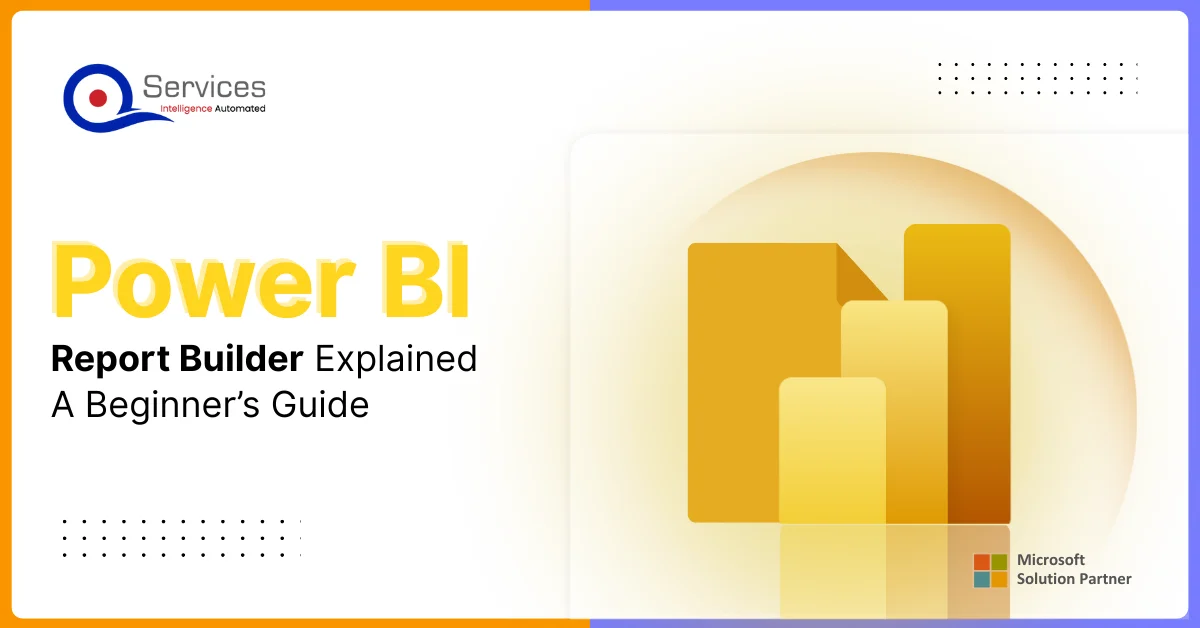
Home » .NET Core and DevOps Revolutionizing Cloud-Based Software Development

The .NET framework is constantly evolving, providing developers with a solid foundation to create cutting-edge software solutions. When combined with DevOps, a process that’s 41% faster than traditional operations, these technologies have a significant impact on the Software Development Life Cycle (SDLC). As businesses increasingly turn to the cloud to meet user demands for fast and reliable applications, we explore the importance of adapting development practices to a cloud-native approach. Whether you’re updating your existing application or starting from scratch, this article offers the knowledge, tools, and resources necessary to navigate this shift in cloud-based software development
Cloud computing represents a groundbreaking model that facilitates seamless, on-demand access to a shared pool of configurable computing resources, spanning networks, servers, storage, applications, and services which enables rapid provisioning and release of resources with minimal management effort or interaction with service providers.
Users can autonomously provision computing resources such as server time and network storage as needed, without direct human intervention from service providers.
Cloud services are accessible via standard network mechanisms, ensuring compatibility across various client platforms, including mobile devices, tablets, laptops, and workstations.
Cloud providers employ a multi-tenant model, dynamically allocating physical and virtual resources to cater to multiple consumers’ needs based on demand.
These are managed by third-party service providers, delivering computing resources such as servers and storage via the Internet. Here, the provider assumes all infrastructure and management responsibilities, while users access services and manage accounts through web browsers.
Reserved exclusively for a single organization, private clouds can be hosted either on-site within the organization’s premises or by third-party providers. They offer advanced control, security, and customization options compared to public cloud services.
Hybrid clouds seamlessly blend both public and private cloud environments, enabling smooth sharing of data and applications between them. This integration provides businesses with increased flexibility, deployment choices, and the capability to tailor infrastructure, security, and compliance measures according to their unique requirements across both cloud models.
Get free Consultation and let us know your project idea to turn into an amazing digital product.
DevOps is crucial in cloud-based software development, seamlessly integrating cloud computing by promoting collaboration, speed, and continuous delivery. DevOps on the cloud essentially represents a shift in how developers understand user needs while operations engage in development, integrating maintenance and feedback. This synergy leads to comprehensive “full stack” development and automation, streamlining processes for swift innovation and continuous improvement.
Cloud-based DevOps enhances these benefits, facilitating rapid and efficient software delivery with scalability and flexibility. It signifies a transformative approach to cross-functional cooperation, combining the capabilities of cloud services with agile development.
The evolution of .NET Core and DevOps has significantly impacted software development. .NET Core, introduced by Microsoft in the early 2000s, quickly became a fundamental framework due to its unified programming model and extensive APIs. Its modern successor, .NET Core, was developed as an open-source, cross-platform solution to overcome limitations, showcasing Microsoft’s commitment to innovation.
At the same time, DevOps has revolutionized the software industry by emphasizing collaboration, speed, and continuous delivery. Tools like Visual Studio Team Services and Azure DevOps provide developers in the .NET ecosystem with an integrated environment for continuous integration and deployment, automated testing, and agile project management.
The successful integration of .NET Core and DevOps is particularly impactful in cloud-based applications. By utilizing .NET Core’s flexibility and DevOps’ focus on collaboration and automation, developers have a robust toolkit to tackle contemporary coding challenges with confidence.
Tools and Technologies Facilitating the Integration:
.NET SDK: Utilized in Continuous Integration (CI) environments, the .NET SDK operates interactively and automatically, with CI servers running build scripts.
Azure DevOps: Microsoft’s comprehensive offering, including Azure Pipelines, seamlessly integrates with existing projects, providing versatile team options.
GitHub Actions: This automation tool automates build, test, and deployment pipelines, enhancing efficiency in software development workflows.
Jenkins: An open-source automation server, Jenkins enables reliable build, test, and deployment processes, supporting seamless software delivery.
Entity Framework Core (EF Core): Simplifying database interactions for .NET applications, EF Core serves as an Object-Relational Mapping (ORM) framework.
Faster Development Cycles: This integration speeds up development cycles, allowing for quick updates and new features.
Continuous Integration and Deployment: By enabling continuous integration and deployment, .NET continuous integration ensures code quality, reliability, and timely software delivery.
Better Collaboration: DevOps encourages better teamwork between development and IT operations, integrating tools and workflows to streamline the development process.
Easy Maintenance: The integration makes software maintenance smooth and efficient, ensuring easy updates and improvements.
Automation: Designed to support automated build and deployment,.NET Core boosts productivity and reduces manual work.
Higher Efficiency and Quality: Implementing a strong CI/CD pipeline with.NET Core optimizes the build, testing, and deployment phases, resulting in higher efficiency and better software quality.
Cloud computing has transformed the software business with its elastic scalability, rapid deployment, cost-effectiveness, worldwide accessibility, and robust security. This change necessitates that.NET developers modify their application development strategies in addition to implementing cloud-native development methods within their organizations.
The.NET framework provides a robust platform for constructing cloud-native applications. These applications are engineered to fully leverage the capabilities of cloud computing, such as auto scaling and distributed processing. This makes them highly efficient and reliable in dynamic cloud environments. The framework facilitates the creation of observable, production-grade applications that can seamlessly handle the intricacies of cloud infrastructure.
Applications crafted with .NET in a cloud-native fashion possess the agility to swiftly adjust to evolving business requirements and market dynamics. Leveraging the cloud’s capabilities, these applications seamlessly scale resources in response to workload fluctuations, guaranteeing continuous responsiveness and accessibility. This inherent adaptability empowers businesses to sustain peak performance and service standards effortlessly, eliminating the need for manual intervention.
The pay-as-you-go model of cloud services enables businesses to optimize their IT spending. By leveraging .NET’s cloud-native capabilities, organizations can reduce costs associated with over-provisioning and underutilization of resources. This model ensures that businesses only pay for what they use, which can lead to significant savings.
.NET applications provide developers with a wide array of deployment choices. They are not limited to specific platforms but can be seamlessly deployed on diverse environments such as Linux, Windows, containers, and any preferred cloud service provider. This versatility empowers developers to select the most suitable environment for their applications, ensuring optimal performance and compatibility across different systems.
.NET seamlessly connects with a diverse array of cloud services, spanning more than 20 messaging, storage, and database solutions. This seamless integration streamlines the development journey by enabling developers to leverage familiar tools and services within the .NET environment. As a result, productivity is enhanced, and the learning curve is minimized, allowing developers to focus more on building innovative solutions.
ASP.NET Core, an integral component of the .NET ecosystem, stands out as one of the swiftest web frameworks accessible today. It empowers developers to craft web APIs of exceptional performance, ensuring swift response times and streamlined data processing. This heightened performance proves indispensable for applications necessitating instantaneous data retrieval and seamless user interaction.
Entity Framework, an advanced Object-Relational Mapping (ORM) framework within the .NET ecosystem, streamlines the process of interacting with databases for .NET application development services. This powerful tool empowers developers to seamlessly query widely used databases such as PostgreSQL, SQL Server, SQLite, and Cosmos DB directly through C# code, eliminating the need for intricate SQL queries. By abstracting the database interactions into intuitive C# methods, Entity Framework significantly reduces development complexity and enhances productivity. This abstraction layer not only simplifies database access but also fosters a more efficient and streamlined development process for .NET applications.
Within the .NET ecosystem lies ASP.NET Core, a cutting-edge web framework renowned for its exceptional speed and efficiency. Developers harness its power to craft lightning-fast web APIs, ensuring swift response times and seamless data processing. This level of performance proves indispensable for applications demanding real-time data access and extensive user interaction, empowering developers to deliver responsive and dynamic user experiences.
Entity Framework, an advanced Object-Relational Mapping (ORM) framework within the .NET ecosystem, streamlines database interactions for developers. By enabling queries to popular databases such as PostgreSQL, SQL Server, SQLite, and Cosmos DB using C# code rather than SQL, Entity Framework simplifies development complexities and enhances productivity. This abstraction layer not only reduces the learning curve for developers but also ensures consistency and efficiency across various database platforms, ultimately streamlining the development process and accelerating time-to-market for applications.
.NET includes built-in APIs for creating resilient applications. These APIs help developers implement patterns such as circuit breakers, retries, and fallbacks, ensuring that applications can handle failures gracefully and maintain high availability.
Azure, Microsoft’s cloud platform, natively supports .NET and integrates seamlessly with Visual Studio. This integration provides a rich set of tools and services, including auto-scaling, automatic patching, continuous integration and deployment (CI/CD), advanced performance monitoring, and production debugging. Azure’s native support ensures that .NET applications run efficiently and take full advantage of cloud features.
Azure Functions, a serverless computing service, allows developers to build and deploy event-driven applications without managing server infrastructure. This approach reduces operational overhead and allows developers to focus on writing code. Azure Functions fully supports .NET, making it easy to develop and deploy serverless applications.

Traditionally, .NET applications were built and deployed in on-premises environments, following a monolithic architecture. However, with the rise of cloud computing, there has been a paradigm shift towards building applications that are designed to leverage the scalability, flexibility, and resilience offered by cloud platforms. This evolution has been facilitated by the emergence of .NET Core, a cross-platform, open-source framework that has become the cornerstone of modern .NET development.
Embracing a microservices architecture is crucial when crafting cloud-native .NET applications. This approach involves splitting applications into smaller, independent services that talk to each other using clear guidelines. .NET Core’s ability to support modular development and containerization makes it perfect for implementing this architecture, allowing developers to create applications that can handle increased workloads and remain reliable in cloud environments.
Containerization, led by Docker, is a game-changer in modern application deployment. Docker enables developers to wrap up applications and all their necessary parts into portable containers, ensuring they run consistently across various setups. With .NET Core, developers can easily package their applications into containers, making deployment and scaling on cloud platforms a breeze.
Integrating CI/CD practices, especially continuous integration for .NET, is vital for ensuring the swift and dependable delivery of software. CI/CD automates the building, testing, and deployment processes, empowering developers to confidently and efficiently implement changes. .NET Core’s seamless integration with CI/CD technologies accelerates the delivery of cloud-native applications and streamlines developer workflows.
Thanks to the diverse array of testing tools and frameworks available in .NET Core, developers can easily set up unit tests, integration tests, and end-to-end tests. By incorporating automated testing into their development processes, developers can proactively identify and resolve issues early, reducing the risk of problems occurring during software usage.
When building .NET applications for the cloud, it’s crucial to adhere to a set of best practices that align with cloud-native principles. These practices, which encompass both DevOps and cloud computing methodologies, are essential for maximizing the advantages of cloud computing. By implementing these best practices and harnessing the capabilities of .NET Core, developers can craft cloud-native applications that are resilient, scalable, and efficient, perfectly suited to meet the demands of the modern digital economy. As the global adoption of cloud technologies continues to grow, the combined forces of .NET Core, DevOps, and cloud computing will remain pivotal in shaping the future landscape of software development.
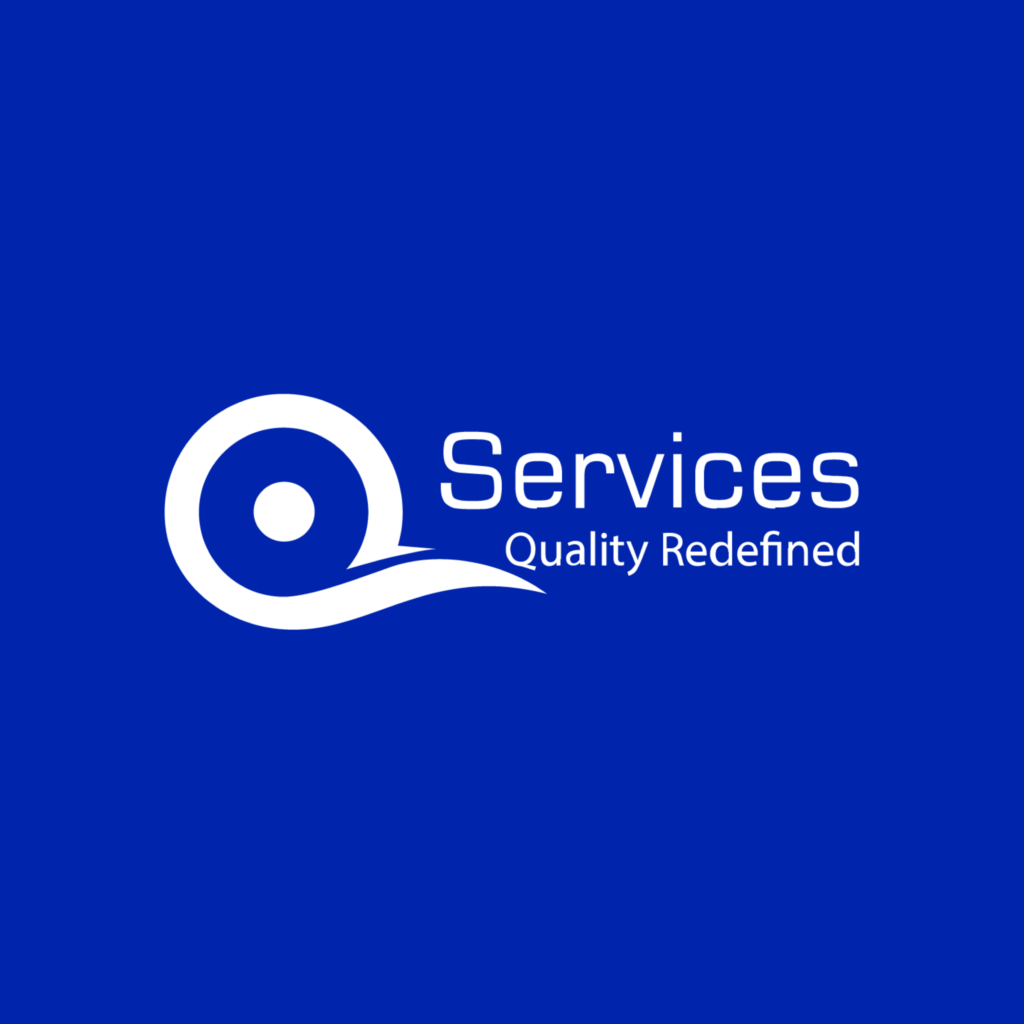
Our Articles are a precise collection of research and work done throughout our projects as well as our expert Foresight for the upcoming Changes in the IT Industry. We are a premier software and mobile application development firm, catering specifically to small and medium-sized businesses (SMBs). As a Microsoft Certified company, we offer a suite of services encompassing Software and Mobile Application Development, Microsoft Azure, Dynamics 365 CRM, and Microsoft PowerAutomate. Our team, comprising 90 skilled professionals, is dedicated to driving digital and app innovation, ensuring our clients receive top-tier, tailor-made solutions that align with their unique business needs.
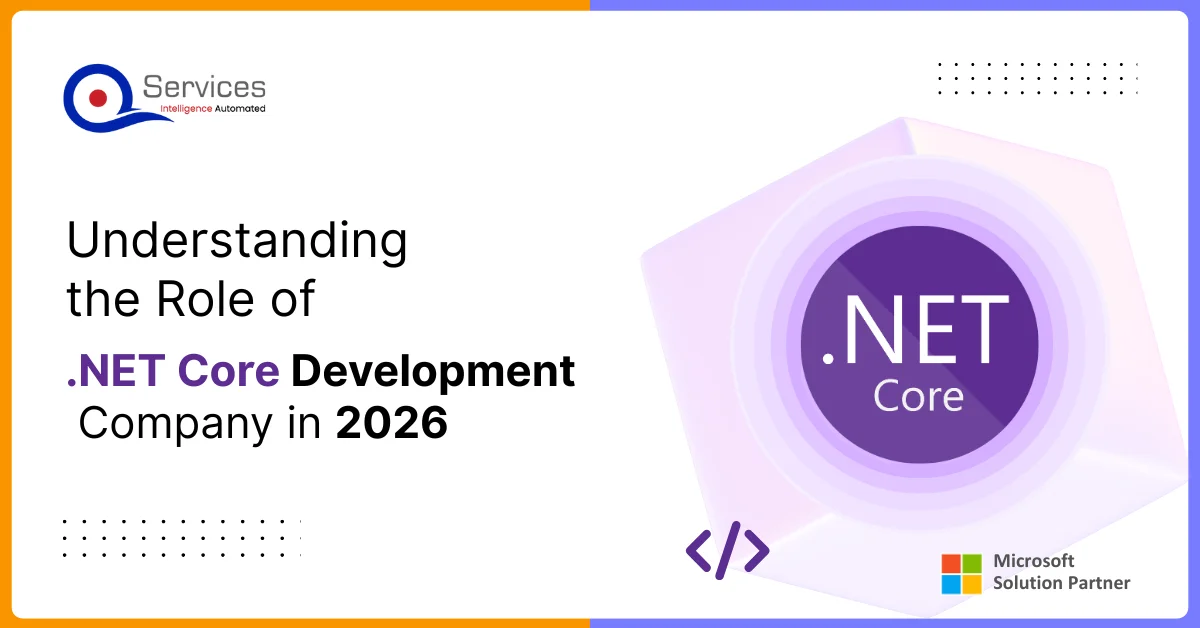
A modern .NET Core development company plays a central role in this change. With rising demand for intelligent and distributed systems, asp.net core development has become a preferred choice for enterprises. The framework supports speed, flexibility, and cross-platform delivery. However, its real value depends on how well it is implemented.
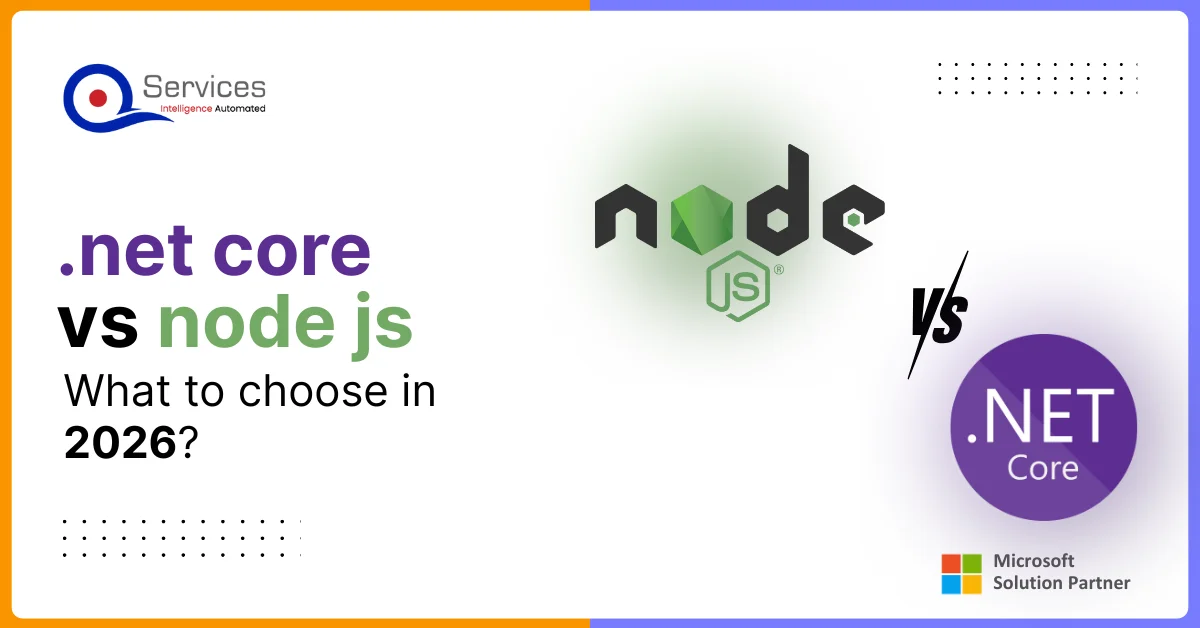
Selecting the right software platform should never be a technical choice. For businesses, it is a risk decision that affects speed to market, cloud costs, team productivity, and long-term system stability.
In the .NET Core vs Node.js debate, the focus should be less on which technology is “better” and more on which one fits business needs in 2026. Companies now balance rapid product delivery and remote development with stricter regulations, data protection requirements, and uptime expectations.
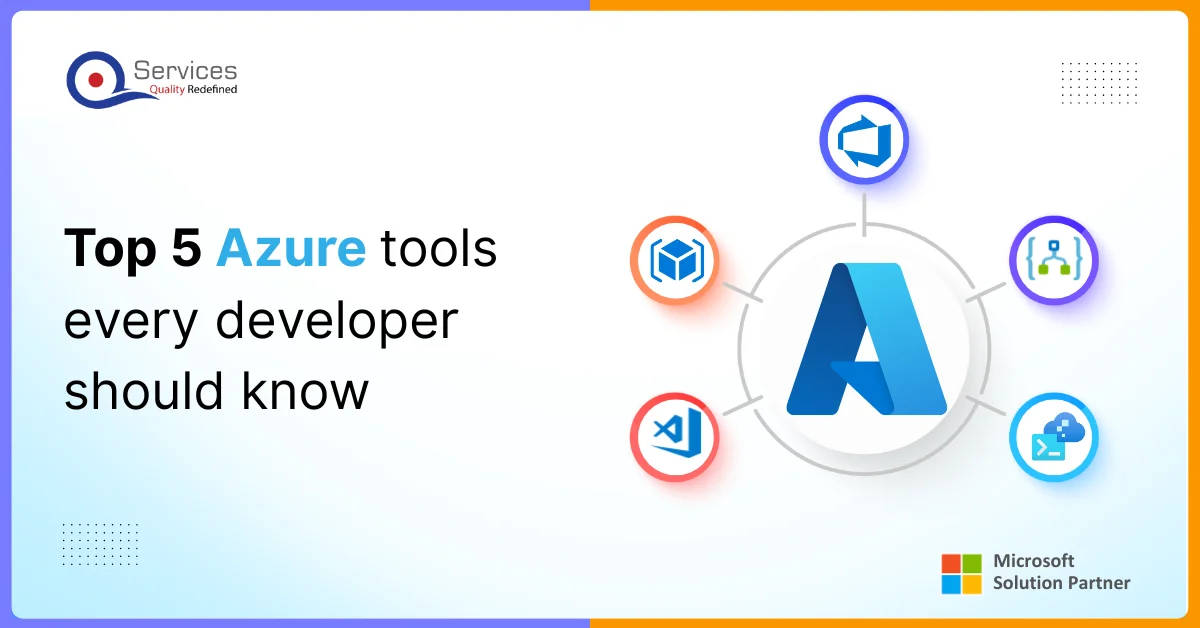
In 2026, it’s vital for every developer to be skilled in using the right set of Azure developer tools for cloud projects. Microsoft’s Azure cloud platform is at the center of this shift, providing a wide range of solutions for building and managing apps. With cloud development with Azure, teams can launch reliable apps that scale globally and respond to business needs in real time. Picking the right items from the Azure tools list can save time, money, and help you get better results.
DevOps is a software engineering practice that is suited to cloud computing. In a DevOps environment, developers collaborate with IT operations and other teams. DevOps goes beyond continuous integration and continuous delivery (CI/CD) to enable near-instantaneous deployment of products and services in the cloud.
.NET DevOps specifically focuses on implementing DevOps principles and practices within the .NET development environment, leveraging tools and technologies tailored for .NET applications.
DevOps and CI/CD practices are essential for modern software development. Implementing a robust CI/CD pipeline in .NET Core improves efficiency and software quality. Consider exploring practical examples to streamline your build, testing, and deployment processes.
Azure DevOps, combined with .NET Core’s containerized delivery and microservices, streamlines and expedites the delivery of Cloud Native applications. It provides utilities hosted on the Cloud, enhancing efficiency and value delivery.

Founder and CEO

Chief Sales Officer
